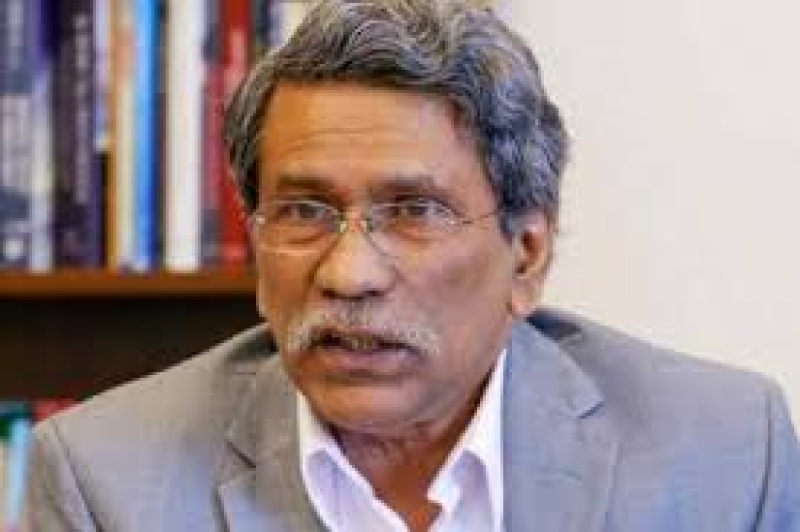- $10mn Approved for Climate Resilience in CHT: ICIMOD |
- At least 143 dead in DR Congo river boat fire tragedy |
- Dhaka has worst air pollution in the world Saturday morning |
- Container ships to ply between Mongla and Chattogram ports |
- France to Break Away from UK & US in Recognising Palestine as Nation State |
Riaz urges unity to build new Bangladesh, resist fascism

Vice Chairman of the National Consensus Commission Prof Ali Riaz on Saturday said everyone needs to work together to build a new Bangladesh so that the fascism and repressive systems canno return to Bangladesh.
"Now our task is to work together to build a new Bangladesh, so that fascist rule does not return to Bangladesh, Bangladesh's democratic institutions take a permanent shape and the rights of people are established. And so that we can eliminate disappearances, killings, extrajudicial killings and all forms of oppression,” he said.
Prof Riaz said this while delivering his speech at the talks wiith the National Citizen Party (NCP) held at the LD Hall of the Jatiya Sangsad Complex.
An eight-member NCP delegation led by its Convener Nahid Islam attended the dialogue at 10:30am with Prof Ali Riaz in the chair.
The National Consensus Commission arranged the talks as part of a series of dialogues with political parties to reach a national consensus over the state reform initiatives taken by the interim government.
Prof Riaz said the aspirations for democracy were repeatedly been undermined in Bangladesh. “We have witnessed how the victories achieved through democratic struggles have been trampled in various ways and how the state was brought under the control of one person and a system of governance was established,” he said.
Noting that if necessary, discussions with political parties will continue, he said, "We want to prepare a national charter that reflects the aspirations of the nation," he said.
Praising the NCP leaders for spearheading the July mass uprising, Prof Riaz said they fought fearlessly against prolonged fascist rule, risking your lives.
Their comrades even sacrificed their lives to defeat a fascist regime, he said.
“We are grateful to you. The nation will remember you as part of history. You have created a bright chapter in history,” said the Vice Chairman of the National Consensus Commission.
Consensus Commission members Safar Raj Hossain, Dr Badiul Alam Majumdar and Dr Iftekharuzzaman were present at the discussion moderated by Chief Adviser's Special Assistant Monir Haider.
On March 20 last, the National Consensus Commission opened its dialogues with political parties aiming to build a national consensus on the reform initiatives undertaken by the interim government.
The commission has already held talks with 12 political parties.
The commission formed under the leadership of Chief Adviser Prof Muhammad Yunus aims to establish a unified stance on critical reforms.
Since its inception on February 15, 2025, the commission has been working to finalise recommendations for the state reform proposals.
In the initial phase, key recommendations from five reform commissions — covering constitutional, public administration, electoral system, judiciary, and anti-corruption reforms — were compiled and shared with 39 political parties for their feedback. To date, 34 parties have responded.
The National Consensus Commission is working to build national consensus over reform initiatives by mid-July next, by completing the first round of talks with political parties by the first week of May next and entering the second round of talks in the second week of May, reports UNB.

